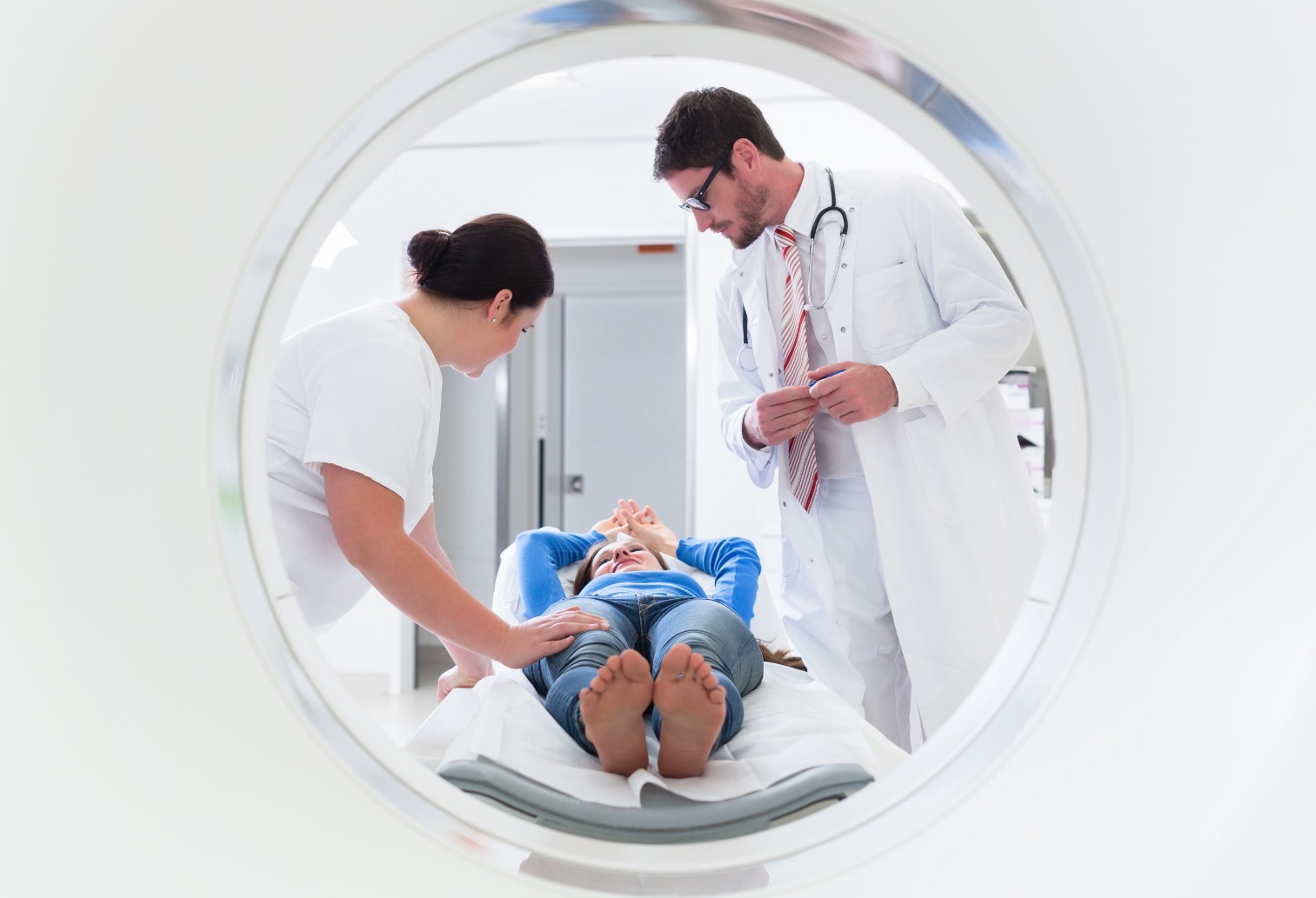Sometimes called a coronary calcium scan. It’s a simple imaging test that can identify possible coronary artery disease long before you have any signs or symptoms.
Specifically, the coronary CT scan measures the calcium deposits in your arteries. This calcium plaque is a combination of calcium, fats, cholesterol and other substances in your blood. It builds over time and doesn’t show many symptoms of disease early on. When this plaque builds up and gets to a certain point, it narrows your coronary arteries, and decreases blood flow to the heart–which could put you at you a high risk for heart disease or even a heart attack!
Your doctor may then use the results of the heart scan to check your level of risk present and calculate the appropriate next steps. For instance, you may need medication or a few lifestyle changes to reduce your risk of a serious heart attack or other heart conditions.
Cardiovascular disease is the leading cause of death in both men and women in America, but it is preventable. If detected early enough, it’s possible to reverse. These cardiac screenings are of importance to patients with many risk factors for heart disease such as family history of heart disease, high cholesterol, high blood pressure, obesity, diabetes, smoking, lack of exercise, poor diet and a high-stress lifestyle.

You’ll lay on a CT table, and you may have the support of pillows to help you stay in the proper position during the procedure. At this point, the table will move into the opening of the CT scanner, and very small, controlled amounts of x-ray radiation will pass through your body–but don’t worry, these small levels of radiation are considered safe for adults.
It’s important to note: You will be spending a few minutes in an enclosed space, so if you’re someone who’s affected by claustrophobia, it’s important to speak to your technologist before the procedure. There are a few steps you can take to prepare yourself:
Although unlikely, if you do need sedation before an exam, you will be receiving specific instructions from your scheduler. These instructions will include extra dietary restrictions and medicine to take before your CT scan.
The procedure doesn’t take long and is completely painless. During the procedure, the table moves you through the scanner, allowing the x-rays to move around your body. You may hear a few buzzing or whirring noises, which is completely normal. It’s possible that movement could blur the images, so you’ll need to lay very still for the duration of the exam; you may even need to hold your breath for a few seconds if requested.
After a few rounds, you’ll have to wait for a couple of minutes while your technologist reviews the images for clarity.
Preparation for your CT scan is simple but vital for an accurate reading.
You should wear comfortable, loose-fitting clothing, without zippers or snaps–and be sure to leave any jewelry at home. Patient lockers are available for your jewelry and other valuables, but we encourage to leave them at home during the procedures. Women should inform the technologist if there is any possibility that you are pregnant.
The entire examination shouldn’t take longer than 30 minutes, depending on the location that is being scanned. Most people will be able to drive themselves home afterwards. You will not be able to drive if you’ve had any form of sedation–so be sure to make the proper accommodations in advance.
After your exam, your radiologist will review and interpret your CT. Test results are available within 48 hours for you to view on our Patient Portal.
We also send test results directly to your physician. From there, your doctor will follow up with you with the test results and recommendations regarding your heart health.
Patients who are post heart bypass surgery, have had a heart stent(s) placement, heart valve
replacement, or pacemaker. The results of the CT Calcium Score are not accurate in
patients with this history due therefore we do not recommend this procedure.
US Food and Drug Administration
https://www.fda.gov/radiation-emitting-products/medical-x-ray-imaging/what-are-radiation-risks-ct
Center for Disease Control
https://www.cdc.gov/heartdisease/facts.htm
For more detailed information on the cardiac CTs for calcium scoring
offered by Premier Diagnostic Imaging, Email or Call Us at (931)-528-1800.